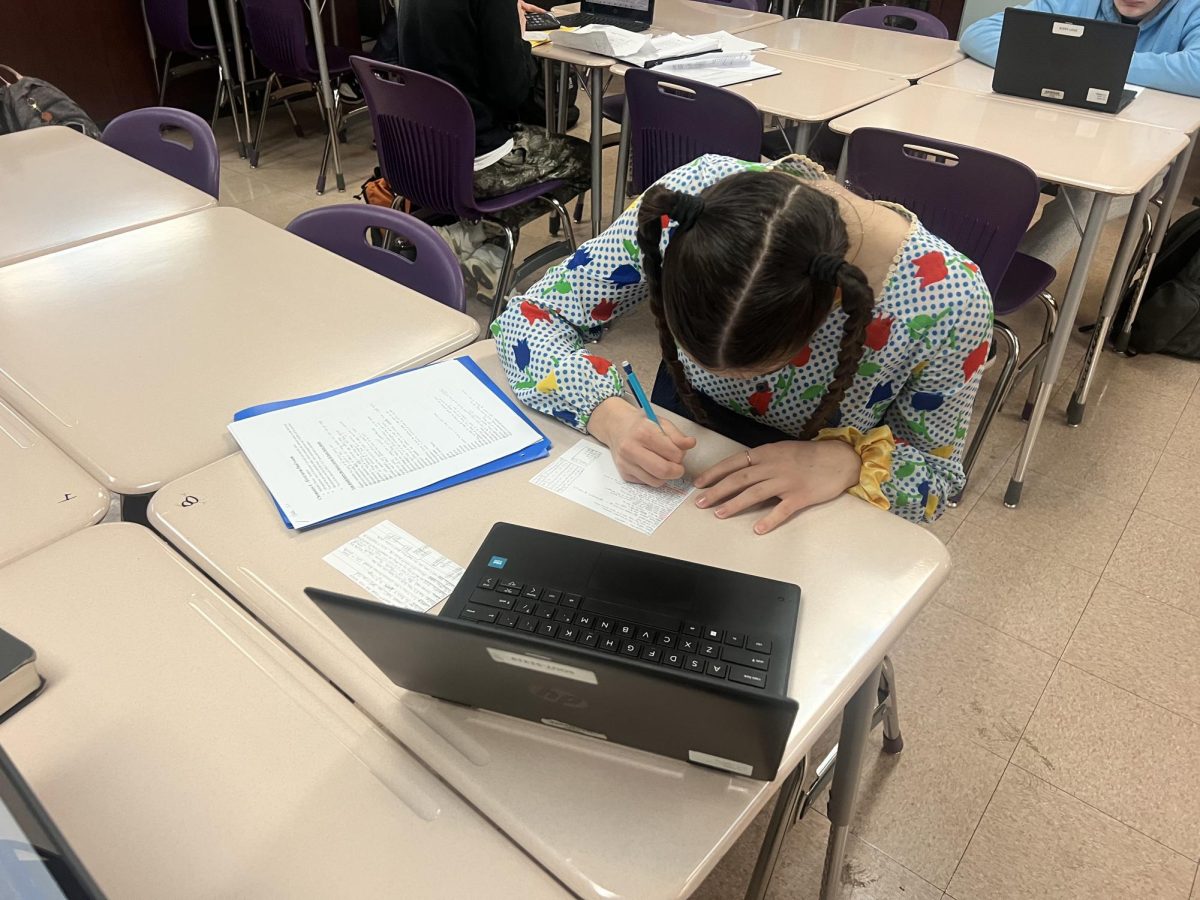Picture this: you are in freshman English class panicking over the chapter of Lord of the Flies you didn’t read. You quickly Sparknote the chapter and learn that it represents something about how all humans are instinctively evil. You decide to watch the chapter summary video on Youtube as well, just to get that extra comprehension of what you “read.” After that, you are good to go. A semi-understanding of the book is enough to get you through the unit.
This pattern seems to repeat itself as students navigate through their high school English classes, whose course work typically includes a classic piece of literature. More than likely, this book will have been written in the mid 20th century in a form of English that is unrecognizable to students.
Scanning the words is not enough to help students understand what the book is saying. Generally students can recognize the theme, and how it represents a bigger issue in the world, but the individual lines just pass right through students’ eyes.
Freshman English and Global Literature teacher Juliana Crespo believes that “we overemphasize classics and that we need to modernize the curriculum.” Crespo still believes the classics are incredibly important in exposing students to that kind of language, but she also believes there is a way to make learning literature more inclusive.
Representation is a valuable topic to teach students from a young age, and Crespo believes that if students are able to read about real world issues and concerns, it will be really beneficial for them to use as they go on in life. “I love bringing in material that exposes students to issues and concerns in the world today because to me that seems more relevant, and I think that they can take away more from that and apply it to the world when they leave.”
“I don’t think that students will take Romeo and Juliet with them in the same way that they would take a novel about a young boy living in South Africa being biracial.”
English 10 and AP Literature teacher Ian Rickerby believes that South and education as a whole is already taking the right steps towards finding a balance between classic and contemporary novels. He has seen AP Literature, a classics based class, start to modernize its list of books that are included on the AP test. “I’ve noticed that the list that they provide, since I’ve been doing this for 10 years, got much more modern with much more novels written after the 1980s and 1990s, which is good.”
Rickerby claimed “knowing both the classics and the contemporaries is important.” In his English 10 class, the curriculum has included topics such as technology and new inventions, while also covering the classics. “Here we are in class with Fahrenheit 451 on the desk because we are reading that this month. But next month, we won’t; we will do something much more contemporary.”
Although there are some schools interested in creating a curriculum that is more representative and modern, there are still schools all over the country that ban books that involve modern topics, or even books written by authors of non-Caucasian backgrounds.
Rickerby shared an article from Bookstr that included a list of 21 books that were banned by a Virginia School Board at a high school there. He pointed out that three of the books on the list were written by the famous African American author Toni Morriso, who has written well-known novels about the Black experience with slavery, violence and sexism.
There is no doubt that it is difficult to modernize a curriculum that is uninterested in involving topics that are representative of all experiences and backgrounds.
Nonetheless, Crespo and Rickerby believe that South is heading in the direction of having a beneficial balance between classic and contemporary, while also being representative of authors and novels with a variety of backgrounds.
Just one example is Crespo’s Global Literature class that is specially focused on being inclusive and bringing awareness to real world issues through literature. In her curriculum for this class, Crespo takes novels by authors from a range of ethnicities to shift the focus from novels that are written from the “white experience” point of view. Learning about the world through literature written by those who have experienced it first hand is a wonderful way to raise awareness in students and allow them to broaden their understanding of the world.

